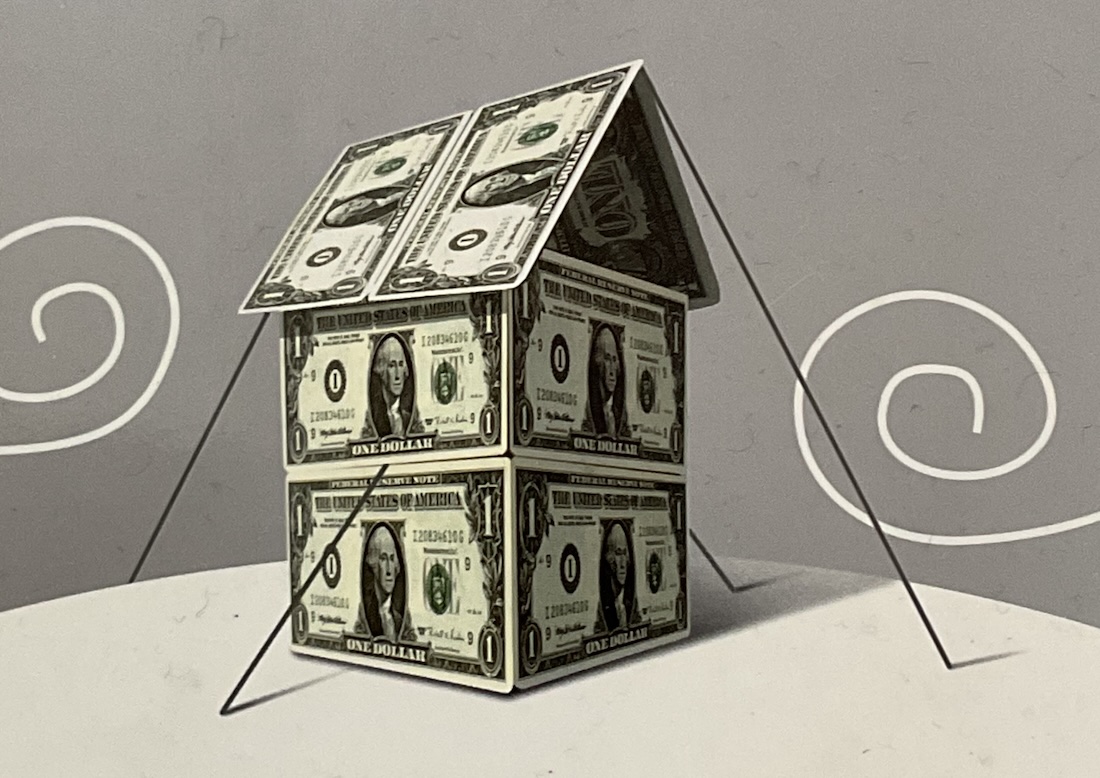Trump’s Trade Policies: Good Intentions, Devastating Consequences

Posted January 4, 2017
President-elect Trump has pledged to eliminate the US trade deficit. In fact, eliminating that deficit is at the core of his economic plan.
I have written about the harm the trade deficit has done to the United States and about the destabilizing impact it has had on the global economy in all three of my books. However, the trade deficit has amounted to $10 trillion over the last 35 years. During that time, it has completely reconfigured the global economy. At this stage, it will be very difficult to eliminate it without causing a global economic crisis and an extraordinary loss of wealth.
The latest Macro Watch video describes the undesirable – and, potentially, devastating – consequences that will arise if the Trump Administration begins to bring US trade back into balance. Here are the topics that are discussed:
- If the US reduces its imports, the global economy will shrink.
- If the US eliminates its $1 billion a day trade deficit with China, China’s economy could collapse into a depression that would severely impact all of China’s trading partners, and potentially lead to social instability within China and to military conflict between China, its neighbors and the US.
- If the US Current Account deficit returns to balance, the global economy will suffer from insufficient Dollar liquidity, which could cause economic stagnation or worse.
- A reduction of imports from low wage countries would cause US inflation to rise, which would push up US interest rates.
- The elimination of the Current Account deficit would cause a sharp reduction in capital inflows into the US, which would also cause US interest rates to rise.
- Higher interest rates would cause credit to contract and the US economy to go into recession.
- Higher interest rates would also cause a sharp fall in US asset prices. That, too, would cause the economy to go into recession.
- Higher interest rates could cause a wave of credit defaults in the US and around the world, potentially leading to a new systemic financial sector crisis.
Investors should be very worried about the consequences of the Trump Administration’s proposed trade policies.
The US trade deficits have produced an extraordinary global economic bubble. If they are now eliminated, that bubble is very likely to pop, with devastating consequences for investors – and for everyone else as well.
For all the details, Macro Watch subscribers can login now and watch Trump’s Trade Policies: Good Intentions, Devastating Consequences.
If you have not yet subscribed, click on the following link:
http://www.richardduncaneconomics.com/product/macro-watch/
For a 50% subscription discount hit the “Sign Up Now” tab and, when prompted, use the coupon code: trade
You will find more than 31 hours of Macro Watch videos available to watch immediately. A new video will be added approximately every two weeks.
Please share this blog on social media.


Hi Richard,
That was one of your best videos ever. I hope the president-elect watches this (you guys have a mutual friend, so there’s a good chance he will). The idea of starting a trade war with China was a big reason for not giving him my vote, though I respect him as a businessman. It’s shocking that he isn’t mindful of the consequences of a trade war on a global scale, hopefully these policies don’t come to fruition, and it’s just rhetoric. The fallouts you discussed in the video never crossed my mind, and need to be taken seriously! Great work, Thank you.
Mike Chambers
Thanks Mike! Much appreciated.
Richard
I’m very skeptical on your views here. Republicans will be a strong moderating force against Trump, not to mention Dems and the Fed (who wants inflation and to raise rates). This is basically a dream for people with your heavy infrastructure spending views. For example, here is Bannon on Trump’s economic plans:
“The conservatives are going to go crazy. I’m the guy pushing a trillion-dollar infrastructure plan. With negative interest rates throughout the world, it’s the greatest opportunity to rebuild everything. Shipyards, ironworks, get them all jacked up. We’re just going to throw it up against the wall and see if it sticks.”
This matches your “investment spending spree” quite well. Obama couldn’t do it because he couldn’t negotiate with Congress, but Trump who is not an ideologue will be cable to swing it (in moderation). And the rest of the world dare not respond to moderate rebalancing with a trade war; they desperately need whatever exports we offer. The US, as the major deficit nation, is in the catbird seat and runs the table here, as you pointed out with your “global minimum wage” view. The US can get whatever it wants in moderation. And we’ve seen how hard inflation is to ignite. More likely: moderate US inflation and growth…and pain elsewhere (where it belongs, until they get their own consumption houses in order and stop relying on the US).
First of all, Trump promises a trillion of spending over 10 years, funded in part by tax credits, etc. This will not move the needle. We need 1 or 2 trillion of spending, now. On the next-gen technology, not necessarily infrastructure. Why focus on shipyards and developing coal when we can incentivize our country’s finest to develop the best nanotechnology or solar or battery technology … real 21st century breakthroughs. And spend money on infrastructure too, while we are at it.
We are also in for a battle over the budget. In a matter of weeks, we will hit $20 trillion in debt. To some, that means something. Shortly thereafter, we hit the Federal debt ceiling limits again … just as Trump wants to ramp up his trillion in spending. How is that going to sit with the fiscal conservatives? Is everyone going to vote to increase the debt ceiling limit without debate and rancor? Doubtful.
I’m glad we have Trump in Washington, as hillary would have been a disaster, but make no mistake…we are at a significant crossroad and have to make the right choices. Richard is spot-on with his analysis. I just wish we had more politicians who read and understand his macroeconomic viewpoints.
I fear we, and the stock markets, are in for a rough ride. I’m glad to have Richard’s guidance to help navigate along the way.
***NOTE: There are two Michaels commenting here, I’m Michael #1 at 8:36 above.***
A comment on Michael #2’s comment: If Trump can’t get things through Congress, then we will just continue down Obama’s policies (with less regulation). So no real change and no big deal.
But nobody believes that. Trump’s a big spender, and while a Ryan led Congress will thwart him somewhat, they will deal to get spending and votes in the end. It will be a “moderate” boom. Perfect, And it will move the needle. Regarding infrastructure versus tech? Hey, it’s a democracy, nobody’s gonna get everything, people should be happy with infrastructure even if it’s not as good as tech. It works for China to stimulate, and it’s better than using the military which is just a waste. I’d rather have bridges and roads and schools than tanks.
Duncan’s fear of the trade deficit is common sense, but fear mongering is not. The deficit has to balance sometime. Again, we won’t get much very fast with an opposition Congress on spending and free trade, we will just start to bend the needle back to balance. But it must happen eventually. Nothing lasts forever, and the sooner this occurs (slowly) the better. So the Trump with an opposition Republican party is a perfect match for a evenly paced change. Read the Bannon quote above; he’s Trump’s mouthpiece, it’s gonna happen, and yet at a moderate pace that likely avoids a trade war.
Hello Richard,
The market seems to be reacting positive everytime there is an increase of the treasury 10y yield. It seems as a natural reaction, if we take the flattening of the yield curve as a negative signal of future economic activity. Though, I understand that an increase (if accentuaded) of the 10y yield could also have a major negative impact on credit/economy.
Is there a range (limit) in which you see that the 10 yrs yield can move without harming the economy?
Thank you very much,
Hi Ana,
I don’t think the US economy is in very good shape to begin with. If the 10 year bond yield goes above 3%, it think the economy will begin to be negatively impacted. If it goes above 4%, I would think we will have real problems with the economy and the stock market. Of course, I could be wrong.
Richard